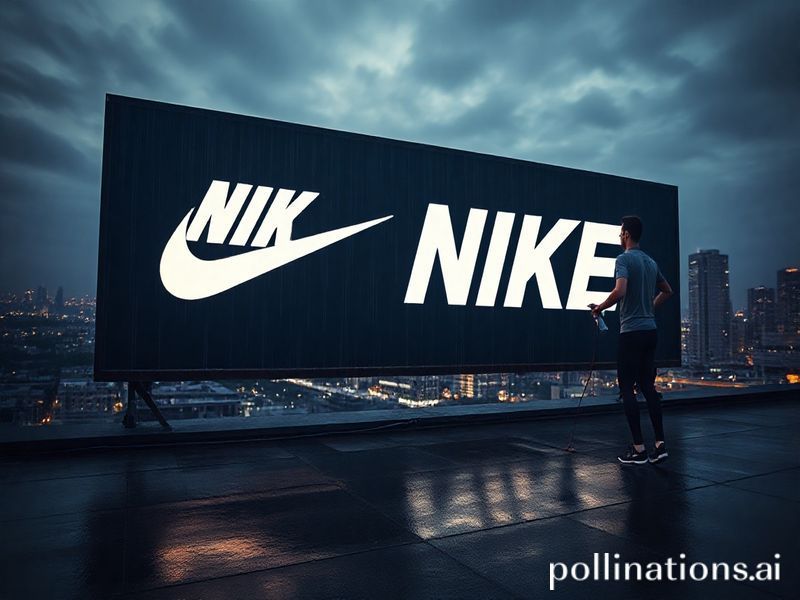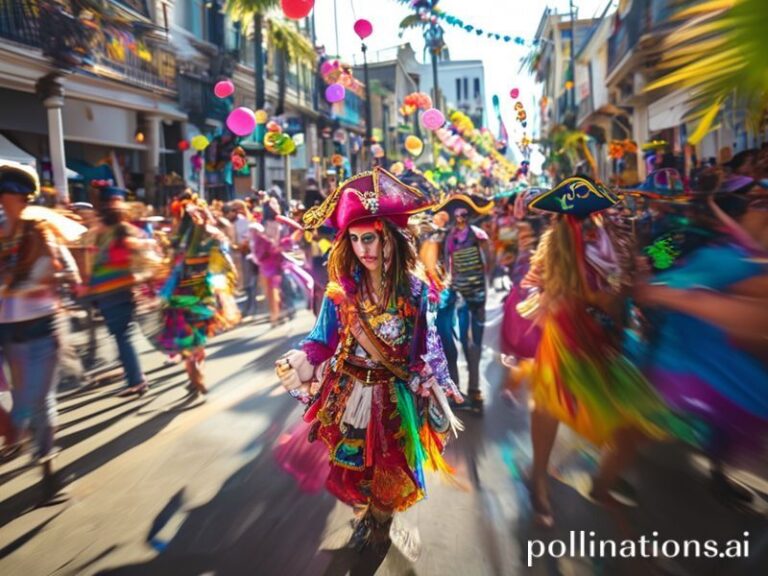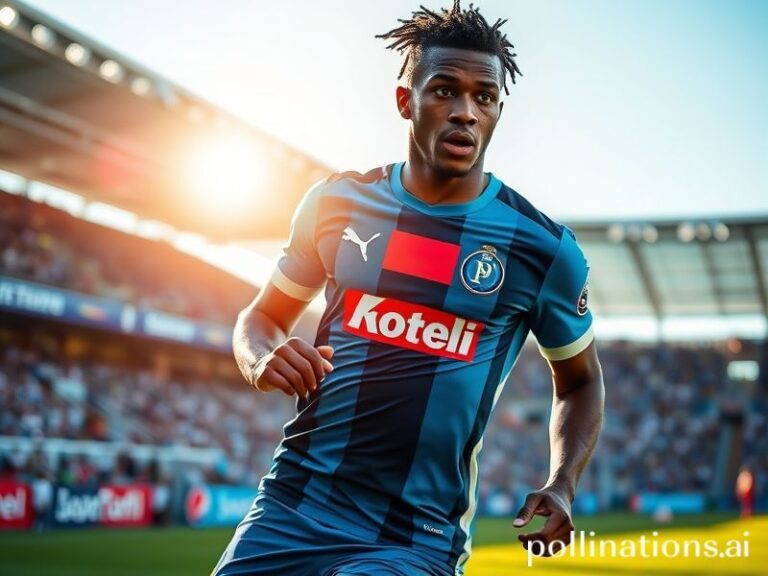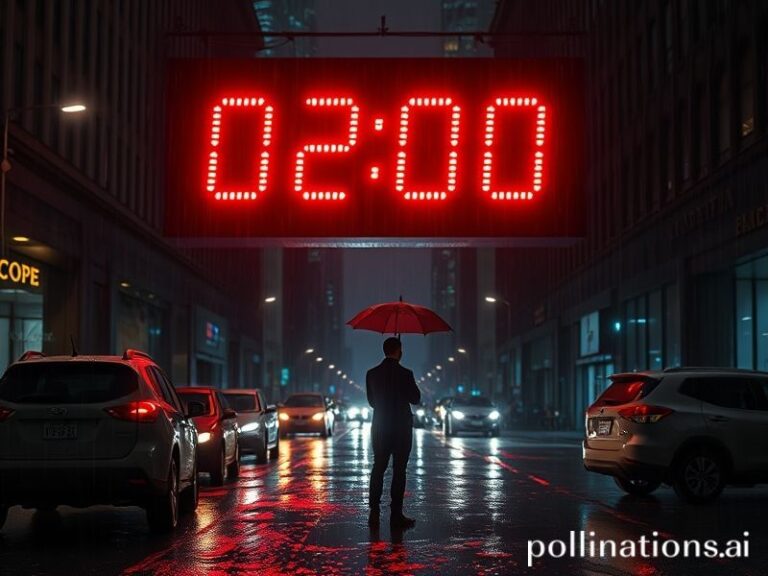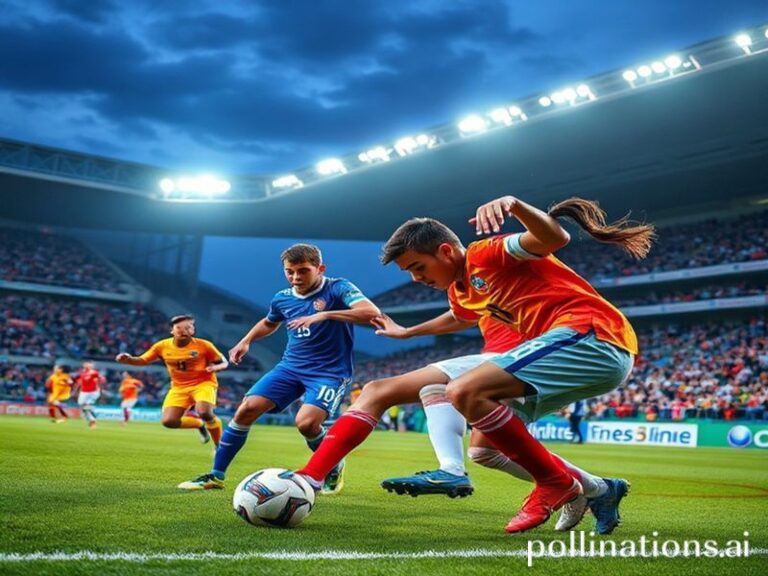Just ‘Win’: How Nike’s One-Word Slogan Conquered a Planet Too Exhausted to Argue
Nike’s New Slogan: A Single Syllable for Seven Billion Egos
By the time the memo leaked from Nike’s glass-and-privacy-glass campus in Beaverton, half of Jakarta had already screen-grabbed it. “Win.” That’s it—four letters, no exclamation mark, no swoosh-shaped heart emoji. Just the imperative form of the verb that keeps stock markets, border skirmishes, and your cousin’s Peloton leaderboard twitching through the night. From Lagos to Lahore, the reaction has been swift, multilingual, and mercilessly meme-ified.
In a world currently rehearsing World War III in 15-second TikTok previews, Nike’s reductionist poetry lands like a haiku scrawled on a bunker wall. Company insiders insist the word is “global in resonance,” which is marketing Esperanto for “we only had to pay one translation agency.” And indeed, “win” requires zero conjugation in English, survives intact in French SMS slang, and is already the default setting on every dating app in Seoul. Linguistic thrift has never been so lucrative.
The slogan’s planetary rollout coincides with a moment when nobody can quite agree on what winning actually entails. For the EU, it’s surviving another winter without Russian gas and without electing another billionaire vampire. For the UK, it’s pretending the lettuce outlasted the prime minister on purpose. For Argentina, it’s Lionel Messi finally bringing home the trophy that will absolve fifty years of economic self-harm. Each constituency interprets “Win” as confirmation bias in Futura Bold.
Meanwhile, supply-chain connoisseurs note the timing is exquisite. The new campaign drops just as Chinese factories reopen after the latest lockdown interpretive dance, Vietnamese workshops clear their backlog of unpaid overtime lawsuits, and American port unions practice their “will-strike-won’t-strike” semaphore. In other words, the world is primed to consume victory—preferably in limited-edition colorways with NFT authentication.
Environmental critics have already dubbed the campaign “One Word, Two Planets.” They calculate that every additional pair of “Win”-branded Pegasus sneakers will require approximately 4.3 liters of water, three rubber trees, and one pangolin’s existential despair. Nike responds that the shoes now contain 25% recycled regret, measured by weight, and that the box folds into an origami trophy so consumers can celebrate without buying a shelf.
Elsewhere, geopolitical strategists are studying the semiotics like Kremlinologists of yore. Russian state television warns that “Win” is NATO mind control wrapped in Dri-FIT. Chinese censors briefly considered banning the word until they discovered it also describes Xi Jinping Thought on Socialism. In Tehran, a bootleg version already reads “Win-Win,” which doubles as both aspirational messaging and a sly reference to sanctions evasion.
The real genius, of course, lies in the word’s moral vacuum. “Just Do It” at least implied a choice about what, exactly, to do—save the whales, rob a bank, eat the rich. “Win” skips the pesky ethics and jumps straight to the scoreboard. In that sense, it’s the perfect slogan for late-stage everything: politics reduced to polling, art to metrics, dating to swipe ratios. Victory is the only virtue left that fits on a notification screen.
And so, from the favelas of Rio—where kids stencil “Win” on concrete walls next to “Obey”—to the glass towers of Singapore—where analysts project quarterly “Win CAGR”—the planet straps on its neon sneakers and runs furiously in place. The finish line recedes like a mirage made of sweatshop vapor and venture capital. But no matter: the app pings, the heart-rate spikes, the algorithm applauds.
In the end, Nike hasn’t sold us shoes; it has sold us a tautology. We must win because we are told to, and we are told to because we must. The swoosh giveth, and the swoosh recordeth on Strava. And somewhere in the dark, an unpaid intern toggles the factory lights off, whispering the new universal prayer: “Win.” It’s the last word before the power cuts, and—naturally—the first when the grid flickers back on.

